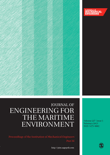
Proceedings of the Institution of Mechanical Engineers Part M-Journal of Engineering for the Maritime Environment
Scope & Guideline
Exploring Sustainable Solutions for Ocean Challenges
Introduction
Aims and Scopes
- Marine Engineering Innovations:
Research on new technologies and methodologies in marine engineering, including developments in propulsion systems, hull designs, and energy efficiency measures. - Environmental Impact Assessments:
Studies addressing the environmental consequences of maritime activities, including emissions assessments, life cycle analyses, and sustainable practices in marine operations. - Hydrodynamics and Fluid Mechanics:
Investigation into fluid dynamics as it relates to marine vehicles and structures, including studies on cavitation, wave interactions, and hydrodynamic performance optimization. - Control Systems for Marine Applications:
Research on advanced control systems, including autonomous vehicles and dynamic positioning systems, emphasizing reliability and performance under various operational conditions. - Safety and Risk Assessment in Maritime Operations:
Analyses focusing on the safety and reliability of marine systems, including human factors, fault detection, and risk management in maritime contexts. - Numerical and Experimental Studies:
Utilization of numerical simulations and experimental approaches to validate models and theories in marine engineering, enhancing the understanding of complex maritime phenomena.
Trending and Emerging
- Sustainable Maritime Technologies:
An increasing focus on technologies that reduce environmental impact, including studies on alternative fuels, energy-efficient designs, and emissions reduction strategies. - Autonomous Marine Vehicles:
A significant rise in research related to autonomous underwater and surface vehicles, including their design, control, and operational strategies in complex marine environments. - Digital Twin and Smart Systems:
Emerging interest in digital twin technologies for predictive maintenance and operational efficiency in marine systems, reflecting the integration of IoT and data analytics in maritime engineering. - Climate Resilience and Adaptation:
Growing research on the resilience of maritime infrastructure and operations to climate change impacts, including studies on adaptive designs and risk assessments. - Advanced Control Systems and AI Applications:
Increased exploration of artificial intelligence and advanced control systems in maritime applications, particularly for enhancing the performance and reliability of marine vehicles.
Declining or Waning
- Conventional Fuel Studies:
Research specifically focusing on traditional marine fuels is declining as the industry moves toward alternative and renewable energy sources, such as LNG, hydrogen, and electric propulsion. - Basic Structural Analysis:
Basic studies on the structural integrity of marine vessels, which were once prevalent, are becoming less common as more sophisticated methods and technologies are developed to address complex interactions. - Static Marine Structures:
Research concentrating on static structures, such as traditional mooring systems, is waning as dynamic systems and adaptive solutions gain more attention in the context of climate change and operational efficiency. - Manual Navigation Techniques:
As automation and advanced navigation systems become standard, studies focused on manual navigation techniques are decreasing, reflecting a broader trend toward digitalization in maritime operations.
Similar Journals

Journal of Eta Maritime Science
Advancing maritime knowledge for a sustainable future.Welcome to the Journal of Eta Maritime Science, an esteemed publication dedicated to advancing the field of maritime science and engineering. Published by GALENOS PUBL HOUSE in Turkey, this Open Access journal has been facilitating scholarly communication since 2013, ensuring that groundbreaking research is accessible to experts and enthusiasts alike. With its E-ISSN 2148-9386, the journal covers a broad spectrum of topics within maritime engineering and related disciplines. Currently positioned in the Q3 category of Engineering (miscellaneous) according to the 2023 rankings, the journal ranks #142 out of 204 in its field and is recognized within the 30th percentile on Scopus, showcasing its growing influence. Researchers, professionals, and students looking to contribute to and engage with cutting-edge maritime science will find a vibrant community and a platform for their work in this journal.
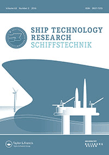
Ship Technology Research
Charting new waters in ship technology research.Ship Technology Research, published by Taylor & Francis Ltd, is a premier journal dedicated to advancing the field of ocean engineering. Established in 1995, this journal provides a critical platform for cutting-edge research, innovative methodologies, and the latest developments in ship technology. With a notable Q2 ranking in the Ocean Engineering category for 2023 and placing in the 70th percentile of Scopus rankings, the journal serves as an essential resource for professionals, researchers, and students aiming to enhance their knowledge and contribute to maritime advancements. The journal not only disseminates high-quality research but also encourages collaboration across disciplines, addressing the real-world challenges faced in ship design, operation, and technology. As a non-open access journal, it continues to uphold rigorous standards, ensuring that published work is both relevant and impactful in fostering innovation in the maritime industry.

Maritime Transport Research
Charting the Course for Maritime Research ExcellenceMaritime Transport Research is a cutting-edge journal dedicated to advancing knowledge and innovation within the field of maritime transport. Published by ELSEVIER, this Open Access journal has been active since 2020, providing researchers, professionals, and students with free and unrestricted access to high-quality research content. With an impressive impact factor and categorized in the Q2 quartile for the field of Transportation, this journal ranks #50 out of 141 in Scopus' Social Sciences _ Transportation category, placing it in the 64th percentile among its peers. Maritime Transport Research aims to foster interdisciplinary dialogue and promote scholarly advancements by publishing original research, reviews, and case studies that address the complexities and dynamics of maritime logistics, policy, and technology. Located in the United Kingdom, this journal is a vital resource for anyone engaged in maritime studies, highlighting its commitment to supporting the academic community through rigorous and impactful research.

INTERNATIONAL JOURNAL OF OFFSHORE AND POLAR ENGINEERING
Shaping the Future of Offshore and Polar EngineeringINTERNATIONAL JOURNAL OF OFFSHORE AND POLAR ENGINEERING, published by the International Society of Offshore and Polar Engineers, is a prominent academic journal dedicated to advancing research in key engineering disciplines such as Civil, Mechanical, and Ocean Engineering. Established in 1991, the journal caters to a global audience, providing an essential platform for disseminating innovative findings and case studies pertinent to offshore and polar environments. With a focus on practical and theoretical applications, the journal ranks in the Q3 category across its relevant fields as of 2023, reflecting its significant contribution to civil and structural engineering, mechanical engineering, and ocean engineering. Although it does not offer open access, its rigorous peer-review process ensures that only high-quality research is published, making it a critical resource for researchers, industry professionals, and students invested in the dynamics of offshore and polar engineering. The journal's commitment to exploring emerging challenges and technological advancements underlines its importance in shaping the future of engineering practices in some of the world's most extreme environments.

Pomorstvo-Scientific Journal of Maritime Research
Connecting Research and Practice in Maritime SciencesPomorstvo-Scientific Journal of Maritime Research, published by the University of Rijeka's Faculty of Maritime Studies, serves as a vital platform in the fields of maritime studies and related disciplines. With an Open Access policy established since 2006, this journal fosters the dissemination of peer-reviewed research covering a diverse range of topics within Engineering, Geography, Ocean Engineering, and Social Sciences, making it an essential resource for researchers, professionals, and students alike. As of 2023, it holds a commendable profile with Q3 rankings in multiple categories, including Engineering and Geography, highlighting its ongoing commitment to quality scholarship. Accessible from Croatia, and included in Scopus with significant rankings, the journal aims to promote innovative and practical maritime research, contributing significantly to the advancement of knowledge and policy within the maritime community.
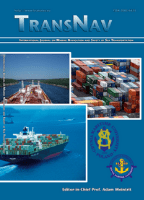
TransNav-International Journal on Marine Navigation and Safety of Sea Transportation
Transforming Maritime Practices with Innovation.TransNav - International Journal on Marine Navigation and Safety of Sea Transportation is a leading scholarly publication that addresses the critical themes of marine navigation and maritime safety. Published by Gdynia Maritime University in Poland, this open-access journal has been a vital resource since its inception in 2007, fostering a global dialogue among researchers, maritime professionals, and students. With an impressive trajectory of convergence from 2019 to 2024, TransNav is recognized for its impact in the realm of Ocean Engineering, Oceanography, and Transportation, holding a notable Q3 ranking in Ocean Engineering and Q4 rankings in both Oceanography and Transportation for 2023. The journal serves as an essential platform for disseminating research findings and advancements that enhance safety protocols and navigation strategies in sea transportation, thus contributing to the sustainability and efficiency of maritime operations worldwide. Researchers can access its wealth of information through various academic databases, ensuring that your work remains on the cutting edge of this vital field.
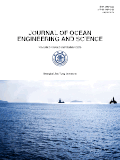
Journal of Ocean Engineering and Science
Connecting global expertise to protect our oceans.The Journal of Ocean Engineering and Science, published by Elsevier, is a prominent academic journal dedicated to advancing the field of ocean engineering and environmental sciences. Since its inception as an Open Access journal in 2016, it has rapidly gained recognition, achieving significant impact factor ratings with notable placements in the prestigious Q1 category for Ocean Engineering and Oceanography, and Q2 for Environmental Engineering in 2023. With a remarkable ranking of #3 out of 105 in Ocean Engineering and #4 out of 145 in Oceanography according to Scopus, the journal plays a critical role in disseminating cutting-edge research and innovative solutions addressing complex challenges faced by marine environments. Operating from Amsterdam, Netherlands, the Journal of Ocean Engineering and Science invites contributions from researchers, professionals, and students worldwide, emphasizing the importance of interdisciplinary approaches in achieving sustainable maritime practices.
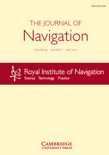
JOURNAL OF NAVIGATION
Advancing Knowledge for Safer SeasJournal of Navigation, published by Cambridge University Press, is a premier academic journal that has served the maritime community since its inception in 1948. With an esteemed ISSN of 0373-4633 and an E-ISSN of 1469-7785, this journal is recognized for its rigorous peer-reviewed research that significantly contributes to the fields of Ocean Engineering and Oceanography. The journal ranks in the Q2 quartile, showcasing its position among the top-tier publications in these domains, with impressive Scopus rankings placing it 24th in Oceanography and 22nd in Ocean Engineering. While currently not an open-access publication, it offers valuable insights and advancements relevant to researchers, professionals, and students, fostering a deeper understanding of navigation in both theoretical and applied contexts. The Journal of Navigation aims to disseminate innovative research that impacts maritime practices and enhances navigational safety and efficiency.

CHINA OCEAN ENGINEERING
Transforming Ocean Challenges into Engineering SolutionsCHINA OCEAN ENGINEERING, published by SPRINGER MEDIZIN VERLAG GmBH, is a prominent journal in the fields of Mechanical Engineering, Ocean Engineering, and associated environmental sciences. With its ISSN 0890-5487 and E-ISSN 2191-8945, this journal caters to a broad audience engaged in research and development related to ocean systems and technologies. As evidenced by its Q2 ranking in Mechanical Engineering and Ocean Engineering, as well as its Q3 placement in Oceanography and Renewable Energy, Sustainability and the Environment for 2023, it provides a critical platform for disseminating innovative research and progressive ideas in these dynamic and interdisciplinary fields. The journal is committed to advancing the science of ocean engineering by focusing on sustainable practices and technological advancement, making it an essential resource for researchers, professionals, and students alike. With contributions from leading experts worldwide, CHINA OCEAN ENGINEERING is dedicated to exploring the multifaceted challenges and opportunities presented by our oceans.

International Journal of Maritime Engineering
Advancing Knowledge for a Sustainable Ocean FutureThe International Journal of Maritime Engineering (ISSN: 1479-8751, E-ISSN: 1740-0716), published by UNIV BUCKINGHAM PRESS in the United Kingdom, is a vital resource for the maritime engineering community, addressing pressing issues in both Environmental Engineering and Ocean Engineering. Established in 2006, this journal serves as a platform for disseminating innovative research, technological advancements, and practical solutions that enhance the sustainability and efficiency of maritime operations. With its current classification in the Q3 quartile for both fields in 2023, it offers valuable insights to researchers, professionals, and students who seek to bridge theoretical knowledge with industry applications. Though the journal does not operate under an open access model, it remains an essential reference for academic discourse and advancement in maritime studies through its rigorous peer-review process and high-level research outputs.